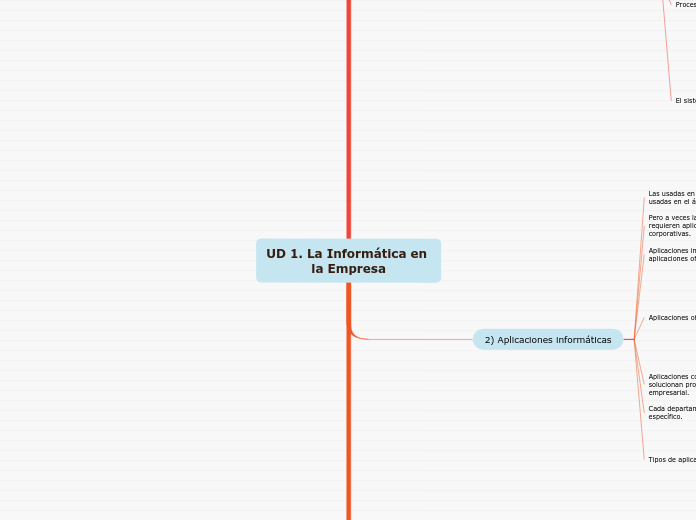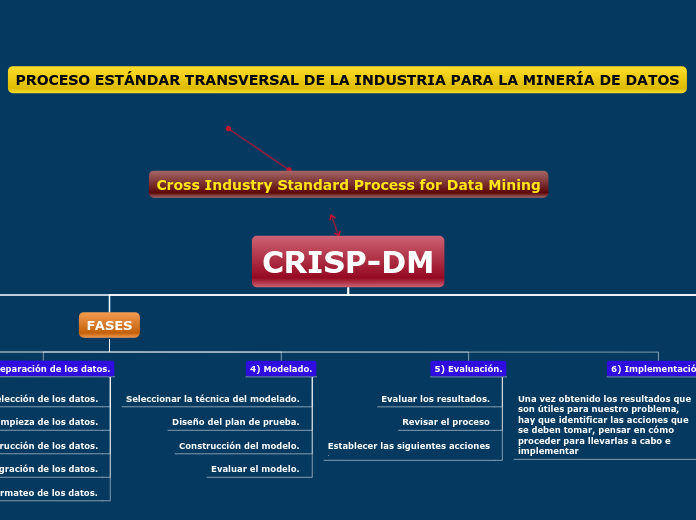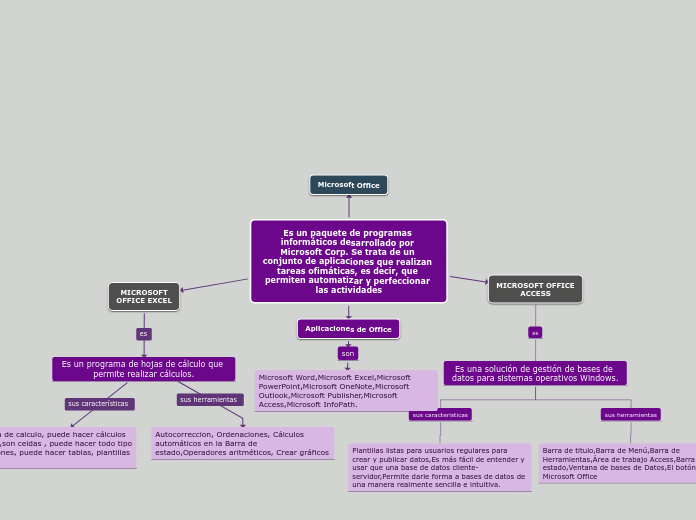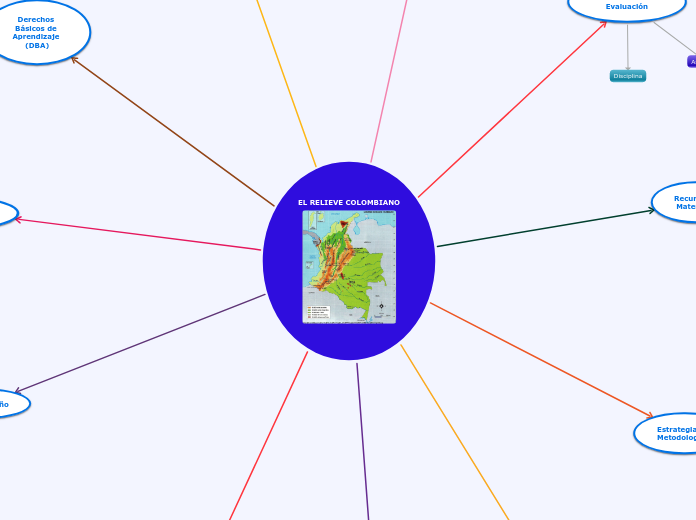UD 1. La Informática en
la Empresa
To name your story, you have to think about the overall message and what you want your audience to understand from the story. Also, make it relevant and easy to remember.
3) Instalación de aplicaciones
The ending of a story is essential. We all know that if the ending is weak, what happened before loses its importance. So make it unpredictable, but fair. A resolved ending answers all the questions and ties up any loose threads from the plot.
Al finalizar la instalación
Registrar el producto
Asociar archivos a un determinado programa
Crear un acceso directo en el Escritorio
Reiniciar el ordenador
Instalación
This is the closure section of the story.
See examples of possible outcomes below:
- all problems have been solved
- it's clear how each one of your characters ends up
- your main character is transformed by the challenge
Durante la instalación: seguir los pasos del asistente respondiendo a preguntas tales como.
Idioma por defecto
Tipo de instalación
Ubicación de archivos
Identificación del producto
Buscar o descargar el fichero ejecutable.
Leer previamente el fichero readme o leeme que contiene información relativa a la instalación.
Try answering these questions in order for you to come up with a closure:
- Have all problems been solved?
- Is it clear what happens with all your characters in the story?
- Has the challenged transformed your main character?
- How do the characters feel in the end?
Fase previa
This is the moment when the main character surpasses the last obstacle and finally faces their greatest challenge.
The climax usually follows one of these patterns:
- realization
- resolution
- choice
Type in your answer.
La seguridad.
Analizar el entorno en el que se ejecutará.
Conocer exactamente las necesidades de la aplicación y de la empresa.
2) Aplicaciones informáticas
The middle of the story is where you add layers of complications that will lead to the end. Reveal more about the character's journey. Did their personality go through changes? How did they overcome the challenges? And as you build up the story’s central conflict, make it more personal to that character. Also, from the middle act, you have to lead into the final act.
Tipos de aplicaciones informáticas corporativas
A medida
Configurables
Sectoriales
Estándar
Cada departamento una actividad un software específico.
Aplicaciones corporativas o de uso empresarial: solucionan problemas estrictamente del mundo empresarial.
Aplicaciones ofimáticas
Gestores de correo y agenda electrónica
Tratamiento de imágenes y vídeo
Gestores de bases de datos
Gestores de presentaciones
Hojas de cálculo
Procesadores de texto
Aplicaciones informáticas usadas en la oficina –> aplicaciones ofimáticas.
There wouldn't be any tension and excitement in your story if there weren't any obstacles in your character's way.
Pero a veces las necesidades de las empresas requieren aplicaciones específicas –> aplicaciones corporativas.
Your character(s) need(s) motivation in order to solve the challenge(s).
Las usadas en las empresas son casi siempre las usadas en el ámbito doméstico.
Each story has a main character and that character usually needs to solve a problem or challenge. The character's challenge is the one that creates tension throughout the story.
1) Funcionamiento de una empresa
In the beginning of the story (or the exposition), you will need to introduce the setting and characters. You might also want to introduce the main conflict. This part of the story is important because it gives the reader necessary background information and maybe even a first insight into a character’s personality.
El sistema informático en la empresa
Componentes
Usuarios
Equipos lógicos o software
Equipos físicos o hardware
Funciones en el tratamiento de la información
Protección
Distribución y presentación
Procesamiento
Almacenamiento
Recogida
Procesos principales de la empresa
Gestión de almacén
Contabilidad
Proceso de compra-venta
Organización de la empresa
Departamentos:
Personal
Administrativo
Financiero
Comercial
Clasificación de las empresas según las actividades
productivas
De servicios
Comerciales
Industriales
Tipos de actividades dentro de la empresa
The setting (time & place) of a story can change throughout the plot.
Productivas
Organizativas
Definición de Empresa:
Characters are essential to a good story. Usually, the protagonist(s) is/are the most affected by the plot. Introduce a character by focusing on their actions, interests, and occupation, as the physical appearance doesn't make a difference in most cases.
Desde el punto de vista informático
Desde el punto de vista económico
Type in the name of your character.










